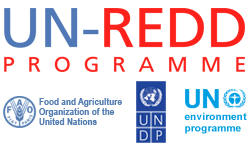
implementation
Achieving forest solutions involves the broadest range of actions from policies and measures to implement REDD+ strategies, to achieve sustainable agriculture and forestry, and to implement safeguards and improve forest monitoring in line with high integrity standards. During 2022, the UN-REDD Programme provided technical support in line with the following demands:
Progress towards achieving the mid-decade target of mobilizing $5 billion of results-based financing (RBF) for future anticipated REDD+ results focused on supporting 10 countries: Colombia, Costa Rica, DRC (the province of Tshuapa), Ecuador, Ghana, Peru, PNG, RoC, Uganda and Viet Nam. These countries received technical support for ART-TREES registration documents, which in most cases1 was a step towards accessing RBF from the LEAF Coalition. In the case of Costa Rica, the first TREES monitoring report (2017-2019) was also supported and successfully submitted to the ART Secretariat. Furthermore, support was provided to prepare for recruitment of the Validation and Verification Body, as required by ART.
Costa Rica and Ecuador signed memoranda of agreement (MOA) with the LEAF Coalition in 2022 and are now advancing, with UN-REDD technical assistance, towards signing of emissions reductions purchase agreements (ERPAs). DRC, PNG and Uganda have also each signed a Memoranda of Understanding (MoU) with the LEAF Coalition. Total potential REDD+ RBF, 2022-2026, for UN-REDD countries looking to benefit from the LEAF Coalition, is $1 -1.2 billion2.
The UN-REDD Programme has been supporting tropical forest countries in integrating and enhancing LULUCF sector actions related to REDD+ to increase the ambition in their new or updated Nationally Determined Contributions (NDCs), and to shift towards translating ambition into action in terms of NDC implementation. This includes support for the inclusion of enhanced or new targets or commitments including or relevant to the forest sector, improvements in institutional coordination to support submissions of new or updated NDCs, as well as securing finance to implement enhanced NDC mitigation actions in the forest sector.
According to the UNFCCC Synthesis Report in 2022, 85 percent of “second generation” NDCs include the LULUCF sector, compared to just 73 percent of previous NDCs. To notable extent, this is the result of support from UN-REDD and the UN Climate Promise initiative. While 81 percent of NDCs refer to specific mitigation options in the LULUCF sector, a smaller proportion of new or updated NDCs (43 percent) include a quantitative mitigation target for LULUCF. Furthermore, 31 percent include explicit reference to reducing deforestation, including efforts to implement REDD+. In summary, since 2018, UN-REDD has provided technical assistance to more than 25 countries in enhancing the role of forest-related activities into new or updated NDCs, as well as NDC implementation plans. This has complemented other ongoing efforts, such as UNDP’s Climate Promise, where some 53 countries have requested LULUCF-related support.
In addition, in 2022, UN-REDD supported more than 10 countries (Chile, Colombia, Costa Rica, Côte d’Ivoire, Democratic Republic of the Congo, Ecuador, Ghana, Papua New Guinea, Peru, Viet Nam and Zambia) in accessing finance and developing work plans to enhance forest sector components of their NDCs, while also integrating gender and social inclusion considerations. The following new and/or strengthened policy measures were achieved with UN-REDD support:
While progress is being made, as the country examples above demonstrate, it is clear that many countries face challenges shifting from pledges to action to ensure that the LULUCF sector, and specifically REDD+, are fully leveraged towards implementation of the NDC and to facilitate both mitigation and adaptation efforts in the forest sector. This points to the value of ongoing support through UN-REDD to strengthen the linkages between NDCs and REDD+ for the forest sector.
